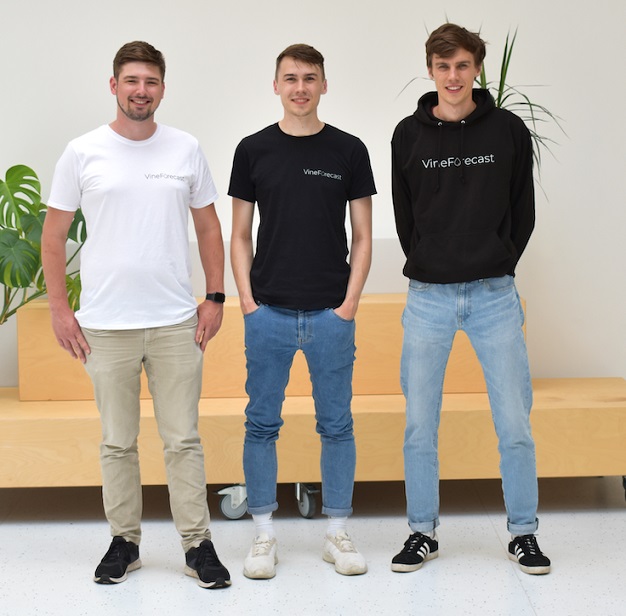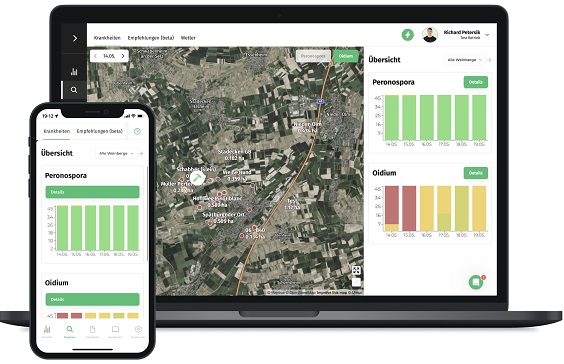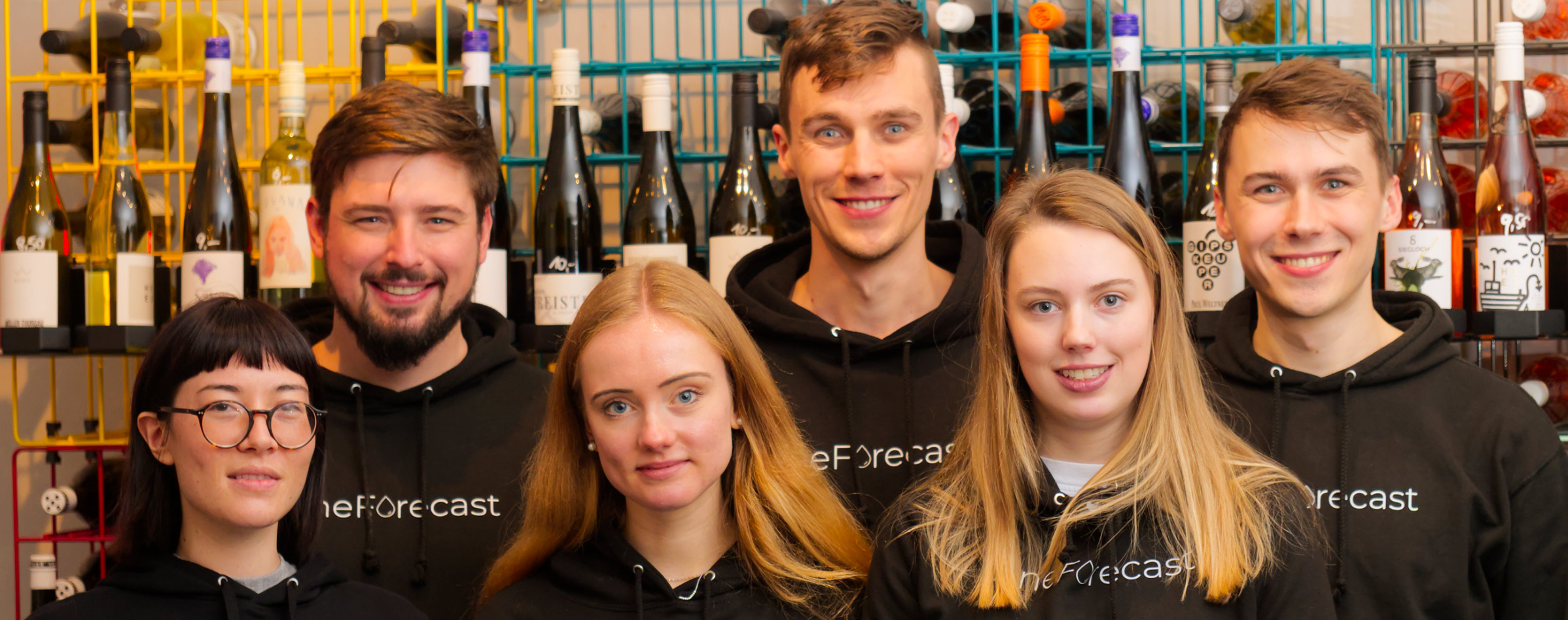‘Diseases are always in the field, they’re just waiting for the right microclimatic conditions to grow. And we can predict those conditions’
Grapegrowers currently uses ‘immersive’ amounts of pesticides to protect their crops, according to Richard Petersik, CEO of VineForecast.
In response, the German startup is tapping artificial intelligence to help farmers reduce their use of agricultural inputs, and ultimately make ‘greener’ wine.
Out in the field, grapevines are susceptible to a multitude of threats, ranging from disease to rot and pests. Pesticides, including subsets fungicides and herbicides, can help ward off potential disease and secure yield. But the quantity of pesticides used in winemaking is excessive, according to Richard, CEO of German startup VineForecast, who is concerned about the inefficient use of agricultural inputs in the sector.
Pesticides can negatively impact soil microorganisms and decrease soil’s general biodiversity. When pesticides are flushed into streams and rivers they can also harm microorganisms and decrease water quality. Biodiversity decline, for example in reduced pollinator numbers, has also been linked to pesticide use.

Together with brother and CIO Paul Petersik and CTO Max Nowack, Richard is working to combat excessive pesticide use in winemaking with the use of artificial intelligence. “Our ambition is to help farmers cut down pesticide use by 25%,” he told me.
From an environmental perspective, the overuse of pesticides is the ‘biggest problem’ facing winemakers, according to him. “Compared to arable farming, such as wheat or corn farming, they’re using up to 25 times more.”
This is because pesticides help vine growers ensure crop yield. As a result, they spray frequently, largely according to predetermined schedules and irrespective of external factors, such as the weather. “Managing vineyards can be a complex task to the large number of areas per farm and different grape varieties. As a result, winegrowers tend to treat their areas in a standardised manner, applying plant protection basically every 10 days.”
But weather and environmental conditions are intrinsically linked to disease risk can significantly vary field by field. If farmers had better advice on levels of disease risk, they would be able to reduce pesticide use during low-risk periods in certain areas. This is what VineForecast has developed for its winemaking customer-base.

VineForecast comprises two components. The first is a ‘microscale’ weather forecasting solution powered by AI. While farmers are already using conventional weather forecasts daily, current offerings are not localised enough to their fields to allow for precision-based decisionmaking, I was told. VineForecast offers ‘hyperlocal’ weather forecasting for areas as small as 25sq m.
“With the help of AI, we make weather forecasting ‘microscaled’. We can predict weather and all kinds of variables – from temperature to humidity – to predict disease development risk. Diseases are always in the field, they’re just waiting for the right microclimatic conditions to grow. And we can predict those conditions.”
The second element of VineForecast’s software lies in farm management. The farmer can log which pesticide they’ve sprayed where. When integrated with disease and weather predictions, ths can offer recommendations for future spraying schedules.
The potential benefits for the environment, as well as the wine industry, are far-reaching. Aside from using fewer pesticides, which can have negative impacts on soil, fresh water, and biodiversity, VineForecast technology has also been designed to secure yield. For many farmers, this is the ‘most important’ element, I was told.
But there are also financial incentives in using fewer pesticides, with the founders aspiring to help farmers cut pesticide use by a quarter. In reducing pesticide use throughout the cultivation process, pesticide residue in the finished wine product would also be reduced. Research suggests pesticides residues can significantly influence wine flavour, said the CEO.
But are traditional growers willing to get onboard with new technologies?
VineForecast believes that once winemakers understand its technology can replace physical in-field weather stations, they are ‘very open’ to testing the technology.
The startup also wants to make sure it brings down ‘as many hurdles as possible’ in the use of the technology – particularly for farmers unfamiliar with digital solutions.
To use VineForecast, farmers can sign up to the platform online or via an app, and draw their plot of land into an online map (or else import data from a land registry). From there, the farmer can access ‘any kind of forecast’ immediately. “This has a huge benefit, compared to hardware solutions like weather stations that need to be bought, installed and maintained,” I was told.
And indeed, farmers are already using the solution. VineForecast currently has 70 paying customers in the DACH region and more than 650 registered farms. “This is already showing that people are willing to adopt new kinds of approaches,” Richard said.
VineForecast is targeting winemakers of all sizes. One current customer has a vineyard of just 0.5ha in size, while its largest customer operates over more than 100ha. As a general rule, the startup is seeking customers operating more than 20ha of vines.
Currently focusing on German-speaking regions – such as Germany, Switzerland and Austria – VineForeast is currently raising funds to market its product internationally.
This article was published originally in our sister publication FoodNavigator.













.png)






